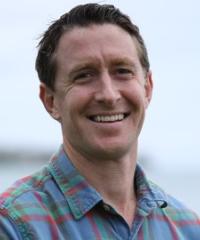
Ronald Coase won the Nobel Prize in 1991 for showing that, under a suite of completely unrealistic assumptions, the allocation of property rights is irrelevant to the overall performance of a newly created market.
Ernst Fehr will win the Nobel Prize in 2019 for showing that, in a completely unrealistic experimental setting, human beings care so much about equity that they will give up their own money to punish or destroy an allocation that they perceive as unfair.
What happens when these two ideas collide in the messy world of real environmental markets? Is allocation always a secondary or tertiary concern that policymakers should generally ignore as long as they get the incentives right? These are the types of questions that I have been asking recently and that I hope to explore in the future as a new emLab Fellow.
As we increasingly use markets to solve environmental problems, there are growing critiques not of the ability of markets to internalize externalities or minimize costs, but of the social impacts that market-based solutions often have. Opponents of the US SO2 trading program point to the unfair concentration of pollution in certain states, critics of catch shares highlight the enrichment of large-scale boat owners to the detriment of crew and small-scale operators, and many in the environmental movement abhor the idea of carbon cap-and-trade programs that could enrich polluting firms by restricting supply and driving up prices.
If environmental economists are going to start taking equity seriously, we need to have a sense of why it matters and when it matters. Armed with that knowledge, we can be of real value in the market design process. If we can identify what features of environmental markets lead to perceptions of inequity, then we can build in features to the market that ensure the negative social outcomes never occur in the first place. For example, an early criticism of catch share programs in fisheries was that they created a barrier to entry for future generations of fishers. Before catch shares, a new fisher just needed to jump in a boat and go fishing to start his or her career. Now they need to buy the "right" to catch fish, which is so expensive that no new entrants can afford it. How can markets be designed to lessen this perceived inequity? Well, catch shares programs in Chile now include a stipulation that catch shares are reduced by 10% each year and this 10% is sold to new entrants in order to allow them affordable access to the fishery. The designers of the market have decided to trade off some efficiency in order to gain some equity.
One area in the environmental market design literature that has been historically under explored is the allocation process. In a series of recent experiments, my co-author Andreas Leibbrandt and I set out to test whether the allocation process could have a causal impact on the efficiency of a market. We set up a series of markets where participants had to decide how much pollution to produce: you make more money by polluting more, but pollution reduces everyone's profits. In order to solve this externality problem, we introduced property rights (pollution permits) but varied experimentally how these permits were allocated. In particular, we allocated the permits in a way that was likely to be perceived as very fair and in a way that was likely to be perceived as very unfair. We also varied the degree to which we enforced these property rights. The results were pretty surprising: we found that equity can be more important than enforcement. If we allocated permits fairly but never enforced the permits (i.e., checked to see if people were polluting more than their allocation), this market worked well as people tended to comply with their permits. But if we allocated permits unfairly and occasionally punished people for polluting more than their permits, compliance with the new market completely broke down and people went back to polluting as much as they wanted to. Introducing enforcement didn't lead to more efficiency, unless the permits had been allocated equitably. The equity of the allocation process had a causal effect on the efficiency of the environmental market.
This suggests two important questions for future work. If equity matters in the lab, is there any evidence that it matters in the field? In other words, is it possible to show a causal link between the allocation process and the subsequent performance of an environmental market. The answer, so far, is no. And if there are real-world settings where equity matters for efficiency, how do we design new types of environmental markets that simultaneously address these often-competing objectives? This is the research agenda that I am hoping to engage with the emLab group. Stay tuned!



